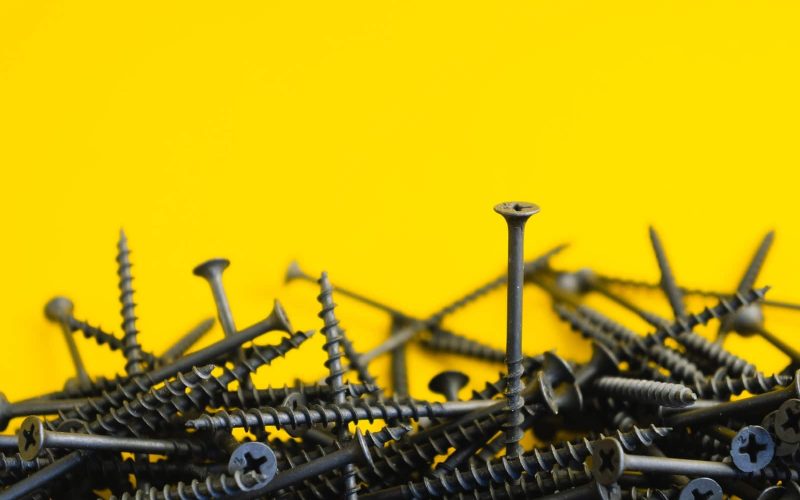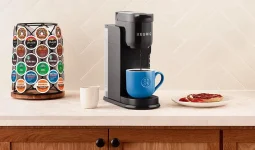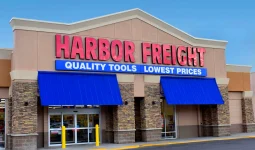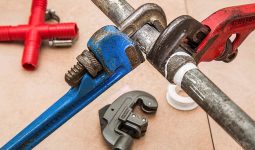This article will learn about some of the different types of fasteners available. But before that, let’s discuss what a fastener is.
What is a Fastener?
The word ‘fastener’ is a broad term that refers to various tools. Screws, bolts, nuts, and other similar tools have the same goal.
The goal is to allow items to adhere mechanically. Fasteners are mechanical devices that hold things in place or together.
You may, however, argue that glue can do this purpose. What is a fastener if the bond is not an example? This will cause us to elaborate on the original definition. Hardware fasteners are mechanical fasteners that keep items together.
Furthermore, Fasteners are divided into several categories, including two categories: permanent and non-permanent.
Fasteners are often thought to establish non-permanent joins. For example, two components joined by a fastener should be able to be separated.
When they are separated, the components must not be damaged. The rivet, a permanent fastener, is an exception to this rule.
However, the fact that most fasteners create non-permanent joints does not imply that the joint is weak. Using fasteners with suitably shaped threads will ensure your things are securely fastened.
Also, you can be confident that your item can withstand much stress this way. They are highly adaptable, making them suitable for many joints.
Different Types of Fasteners
Hex-Head Bolt
The head of this bolt is hexagonal. Its six sides provide an appropriate variety of angles from which to approach it.
This is especially critical when Fastening the bolt to a difficult-to-reach location. These bolts are widely utilized in machining because they are simple to assemble and disassemble.
Double End Bolt
This bolt appears to be a threaded rod. On the other hand, a double-ended bolt has a thread on both ends. As a result, they can work with a nut on one or both ends.
Eye Bolt
A loop on one end and a thread on the other define an eye bolt. The machine’s size and design determine the loop’s performance. This is one of the different types of fasteners.
Carriage Bolt
Bolts with convex metalheads, square necks, and threads are included. They are used to secure wood items. It simply fits into a square neck into wood pieces by exerting pressure. Also, they have self-locking potential as a result.
Socket Head Bolt
Some people may refer to these bolts as Allen bolts. They have hexagonal perforations and cylindrical heads. You can tighten this bolt with an Allen wrench.
Cap Nut
They are dome-shaped with closed ends, which protects the bolt-nut connection and ensures that your work is finished well.
Castle Nut
One of the ends of these nuts has a notch. You can insert pins through the notches in their design. Also, they work well in situations when low torque is required. This is one of the different types of fasteners.
Weld Nut
Weld nuts are used to secure components in difficult-to-reach places. You must weld them to the part’s surface.
Hex Nut
The most prevalent type is hex nuts. They’re inexpensive and straightforward to put together with a wrench.
Self Drilling Screw
They develop internal threads during installation and are also known as self-tapping screws. From tip to head, the shafts are entirely threaded.
During turning, these screws quickly create niches for themselves in the component. However, The architecture of screws and bolts are similar.
Their male threads begin at the very tip. Their heads can also be in a variety of forms. There are a few distinctions between bolts and screws, though.
Screws frequently require internal threads to hold items together. On the other hand, Bolts can retain a grip between non-threaded pieces and nuts.
Sheet Metal Screw
The cutting threads on these screws are highly sharp. This makes it easier for them to cut sheet metal, wood, and plastics. Their shanks are fully threaded and include a notched point for chip removal.
Machine Screw
Screws are utilized in almost all machines. They have a similar structure to sheet metal screws. They’re inserted into holes that have already been drilled. As a result, there’s no need to drill a hole for installation.
Hex Lag Screw
These are big screws for wood. They are beneficial in heavy-duty machinery and wood activities.
Deck Screw
These screws are designed to be easily installed into deck and wood surfaces. The bugle head and square drive help to eliminate stripping effects. Furthermore, this is one of the different types of fasteners.
Wood Screw
Partially threaded wood screws feature smooth shanks. They glide effortlessly through wood and bring the planks together.
Plain Washer
These washers keep components separate from nuts and bolts, aid in preserving surface coatings, and increase the surface area of the material, spreading the load.
In addition, Washers are fasteners used in conjunction with nuts and bolts. Also, they’re commonly found beneath joints, bolts, and axle bearings.
Washers also serve various purposes, including reducing friction. They aid in eliminating leaks and isolating various components.
Using a washer, one of the different types of fasteners, will help prevent component loosening due to vibration.
Spring Washer
Their circular shape has been altered slightly. They behave like springs, and their flexibility increases the elasticity of joints.
Locking Washer
Even when friction or vibration occurs, spring washers keep nuts and bolts in place. Most users prefer them.
Dock Washer
These are heavy-duty washers that aid in the construction of docks. They’re also handy in heavy-duty construction where thick washers are required. This is one of the different types of fasteners.
POP Rivet
These tubular rivets have a cap and a mandrel on them. They can be countersunk, open-end, or closed-end.
In addition, Permanent fasteners like rivets are the most common. They aid in securing various materials and provide resistance to shearing force.
A rivet is very light and has a head at each end to help support axial loads. Rivet guns are used to secure components with rivets.
Threads are not required for rivet installation. They are preferred in the aerospace sector because they are simple to inspect.
Multi-Grip Rivet
Multi-grip rivets are best used when the thickness of the mounting materials varies. The rivets may grow to the desired size and secure the components.
Tri-Fold Rivet
There are three cuts in the hats of these exploding rivets. The cap folds outwards for increased strength and maneuverability.
Large Flange Rivet
The hats of these rivets have bigger washers. They aid in the quick and effective connecting of materials.
Anchor
Anchors are fasteners that work similarly to a boat’s anchor, inserted into the seabed to keep the ship from moving. It’s usually used to secure anything to a surface like drywall or concrete.
Also, they embed themselves in the material and hold the object you’re attaching in place. Anchor is one of the different types of fasteners.
Nails
A nail is a metal spike with a broad flat head driven into the wood and used as a hook or to hold items together. They have existed since the beginning and have become a common household item.
However, Because a nail does not have threading on its body, you can quickly tell the difference between a screw and a nail.
The names of the various types of nails are derived from their applications, which might assist you in selecting the appropriate nail for the job.
Retaining Rings
Retaining rings are fasteners used to secure shafts or components. They frequently create designs in various shapes and are used in various machinery applications.
A retaining ring, such as this one, keeps the latch pin of an IC engine piston in place. It’s also utilized to keep the assembly together in the high-pressure fuel pump of a diesel generator.
Most retaining rings are used once and replaced when the machinery is fixed, although some can be reused.
In conclusion, your application’s needs will always determine the different types of fasteners you employ. Consider whether your fastener will fit.
The fastener’s design can significantly impact its torque capacity. You may need an extremely long flange bolt to hold numerous components of your parts.








It’s great that you talked about how fasteners are mechanical devices that hold things in place or together. I went to a hardware store yesterday and I saw quite a lot of fasteners on sale. I was quite surprised about the variety, and it seems there are metric fasteners too.